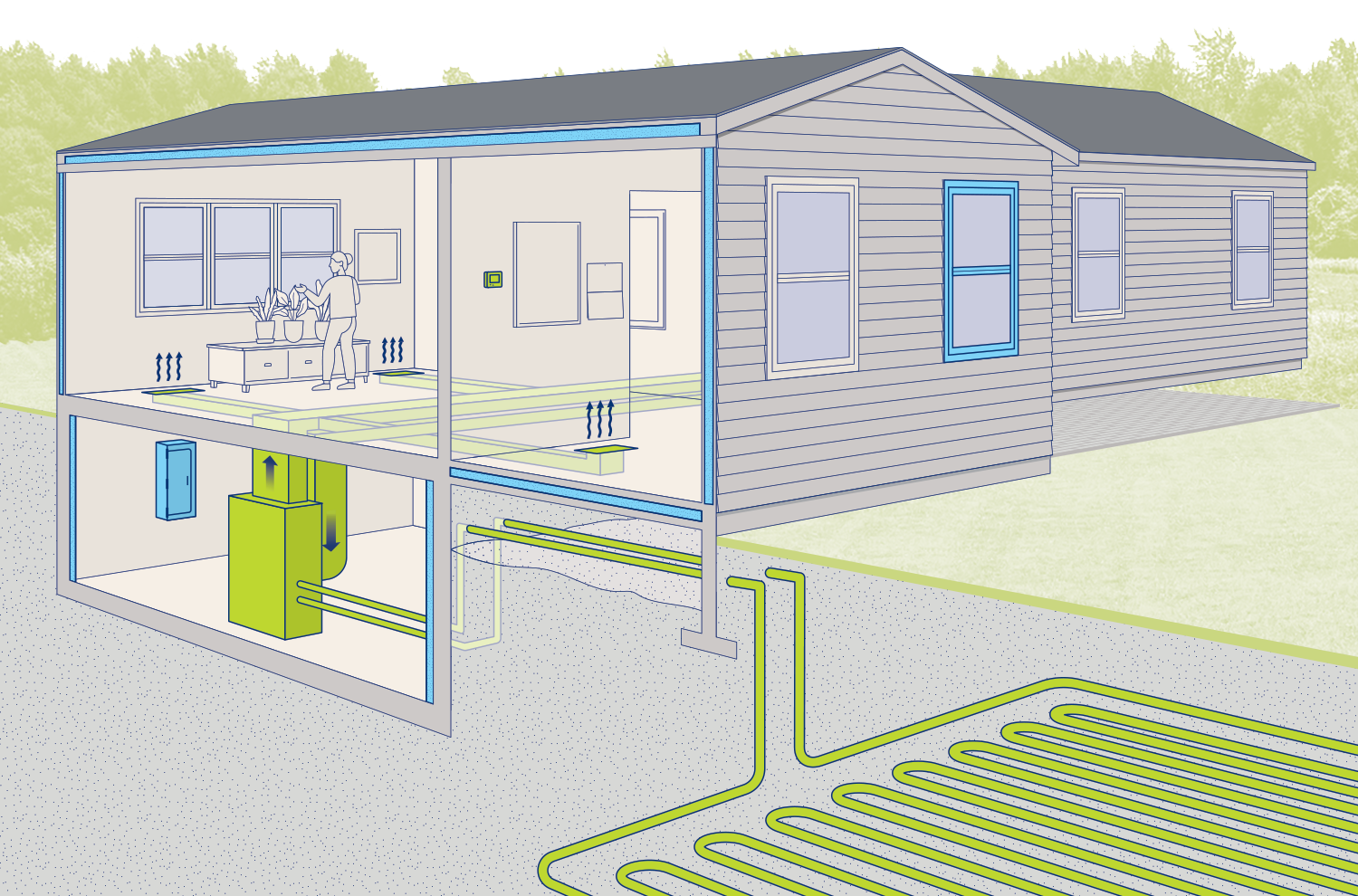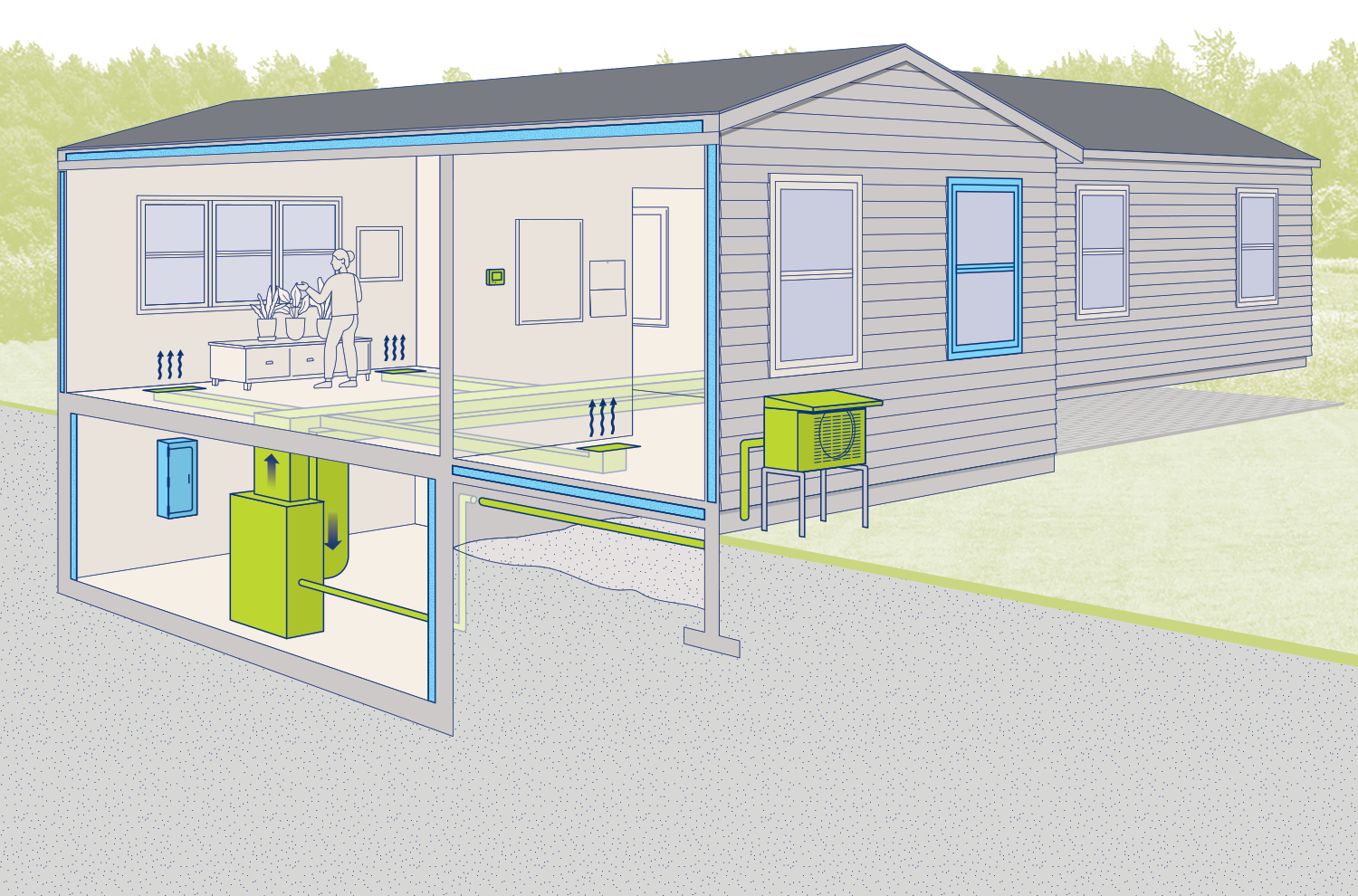Heat Pump Planner: Clean Heating, Cooling, and Water Heating Options for Homes
Heat pumps are a cleaner, proven technology that can provide up to 100 percent of your home’s heating and cooling needs, depending on the system type. In the summer, they work like an air conditioner to move heat outdoors, cooling your home, more efficiently than central air conditioners or window units. In the winter, the process is reversed by using electricity to move heat into your home instead of burning fuel. These systems work all winter and can reduce your energy costs, decrease your carbon footprint, and increase comfort every day.


Heat pump water heaters (HPWHs) use electricity to provide hot water efficiently and reliably, using heat from the surrounding air to heat water. HPWHs use one third the energy of most other water heaters, with no fuels or carbon monoxide risk, and are relatively simple to install without major disruptions.
Heat pumps cost less to operate than oil, propane, or electric baseboard heating systems.
Heat pumps are a safer option compared to gas or liquid fuels. There is no chimney, gas line, oil tank, or burning of fuels and no risk of generating carbon monoxide.
Heat pumps can provide all your heating and cooling needs. The same unit cools your house in the summer and provides heat in the winter.
Heat pumps generate no greenhouse gas emissions when your electricity comes from clean sources. Heat pumps can also be powered by solar at your home.
With current technology, heat pumps are efficient in all seasons and can provide most (if not all) of the heating needs in homes across New York State.
Learn more about heat pumps and available rebates by visiting the NYS Clean Heat program and explore which heat pump might be best for your home through NYSERDA’s interactive Heat Pump Planner.
• You want to save money compared to an oil, propane, or electric baseboard heating system
• You want to add air conditioning or replace an existing AC unit
• Your heating system is old and will soon need replacement
• You are planning a major renovation or building a new home
• You want to address comfort problems in certain areas of your home
• You need to provide heating and cooling to an addition
• You want to improve health and safety for your family
• You want to reduce your carbon footprint
Respond to the below questions to receive a tailored package of options that work for your home.
Ready to install? Learn more about heat pumps by visiting the NYS Clean Heat program and explore which heat pump might be best for your home through NYSERDA’s interactive Heat Pump Planner. Work with a NYS Clean Heat participating contractor and access utility rebates.
Developed By:
New York State Energy Research and Development Authority
nyserda.ny.gov
Building Energy Exchange
be-exchange.org
Steven Winter Associates, Inc.
swinter.com